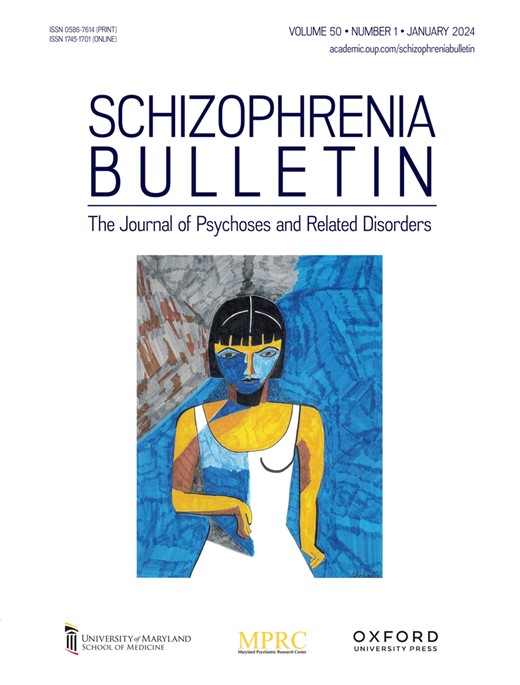73 THE INTERVENTION OF ART DESIGN THERAPY COMBINED WITH AEROBIC EXERCISE ON SCHIZOPHRENIA AND ITS IMPACT ON PATIENTS’ PHYSICAL HEALTH
IF 5.3
1区 医学
Q1 PSYCHIATRY
引用次数: 0
Abstract
Background The clinical manifestations of schizophrenia include perceptual disorders in thinking, emotions, behavior, and lack of coordination in mental activities. The patient population of schizophrenia is mostly young adults, who often suffer from cognitive impairment and mental disabilities due to abnormal factors, environmental factors, and the influence of brain structure. In the intervention of schizophrenia, art design therapy is an emerging nursing intervention method, and aerobic exercise has achieved many results in the intervention of mental illness. The quality of art and design can improve the quality of life of patients by meeting their emotional needs and psychological state, while aerobic exercise can enhance their mentality and self-control ability by strengthening brain neurotransmitters and blood circulation. Therefore, the study will focus on patients with schizophrenia to explore the intervention of art design therapy combined with aerobic exercise on schizophrenia and its impact on patients’ physical health. Methods The study focused on 78 patients with schizophrenia. Patients were randomly divided into two groups, with 39 cases in each group. Two groups were set as the control group and the experimental group, with the control group receiving routine nursing interventions. On the basis of drug intervention and environmental care in the control group, the experimental group added intervention elements of artistic design and aerobic exercise. The intervention lasted for 3 months, and after the intervention, the Brief Psychiatric Assessment Scale and Pittsburgh Sleep Quality Index were used to evaluate the intervention status and physical health of patients in the experimental group and control group, respectively. Results In the experiment, the study compared the anxiety, depression, thinking disorders, and sleep quality indicators of the control group and the experimental group before and after intervention. The specific results are shown in Table 1. From Table 1, it can be seen that after three months of intervention, the anxiety, depression, thinking disorders, and sleep quality indicators of the control group all decreased, but the intervention effect of the experimental group was more significant, with a greater decrease in evaluation indicators. In terms of anxiety and depression indicators, the control group decreased from 22.45±2.24 to 19.34±3.49, while the experimental group decreased from 22.34±2.48 before intervention to 17.16±3.24, and the difference was statistically significant(P<0.05). At the same time, in terms of cognitive impairment indicators, the index of the control group decreased from 23.42±3.53 to 18.63±2.36, while the index of the experimental group decreased from 23.51±2.63 to 15.38±2.94. Finally, in terms of sleep quality indicators, the control group decreased from 2.59±0.24 to 1.79±0.36, while the experimental group decreased from 2.61±0.25 to 1.37±0.54. Discussion From the experimental results, it can be seen that the study of art therapy combined with exercise intervention based on positive psychology design can effectively improve patients’ physical health indicators and alleviate their mental classification symptoms. The intervention method proposed in the study can promote symptom recovery in patients with schizophrenia and improve their sleep quality.求助全文
约1分钟内获得全文
求助全文
来源期刊

Schizophrenia Bulletin
医学-精神病学
CiteScore
11.40
自引率
6.10%
发文量
163
审稿时长
4-8 weeks
期刊介绍:
Schizophrenia Bulletin seeks to review recent developments and empirically based hypotheses regarding the etiology and treatment of schizophrenia. We view the field as broad and deep, and will publish new knowledge ranging from the molecular basis to social and cultural factors. We will give new emphasis to translational reports which simultaneously highlight basic neurobiological mechanisms and clinical manifestations. Some of the Bulletin content is invited as special features or manuscripts organized as a theme by special guest editors. Most pages of the Bulletin are devoted to unsolicited manuscripts of high quality that report original data or where we can provide a special venue for a major study or workshop report. Supplement issues are sometimes provided for manuscripts reporting from a recent conference.
 求助内容:
求助内容: 应助结果提醒方式:
应助结果提醒方式:


